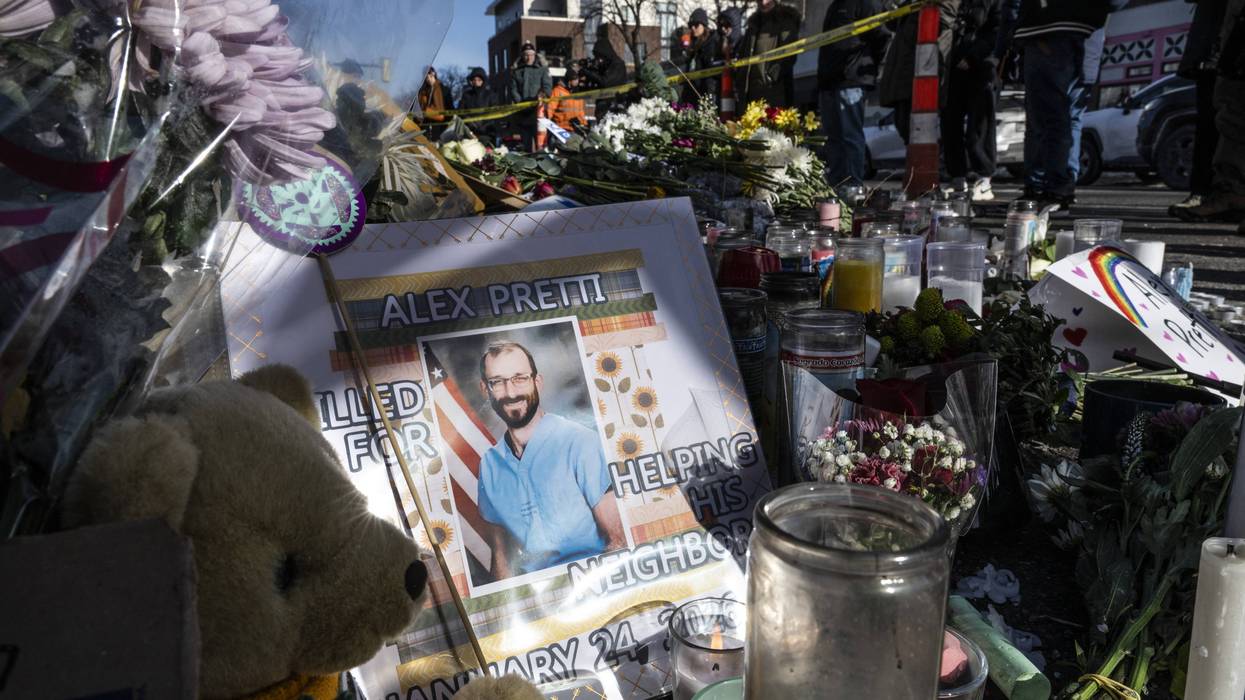The Journal's editors called Pretti's killing “the worst incident to date in what is becoming a moral and political debacle” for President Donald Trump and his administration.
The Journal wasn't alone. Other right-wing outlets owned by the Murdoch media empire, including the New York Post, published editorials calling for a suspension of Trump's crackdown on undocumented immigrants, during which dozens of people have died in ICE custody and federal enforcers have killed two Americans. Even staunchly pro-Trump Fox News challenged administration officials over the shooting.
"It's time to de-escalate in Minneapolis, Mr. President," the Post's editorial board wrote Sunday.
"Not because you’re wrong to enforce immigration law, nor to go after fraudsters who’ve stolen billions in federal funds—but because these enforcement tactics won’t turn the tide, and instead are backfiring," the editors clarified. "Swing voters—Hispanics and independents who turned to you at the last election—see US citizens dying at federal agents’ hands, and recoil in horror."
"The hasty and misleading rhetoric coming out of the administration needs to stop," the Post said. "And while Pretti was horribly misguided, there is no evidence he was a 'terrorist' intent on a 'massacre' of law enforcement."
As they did with Renee Good, the 37-year-old mother and poet who was shot dead by an ICE agent in Minneapolis earlier this month, Trump and some of his senior officials accused Pretti of being a "domestic terrorist"—a move in line with the administration's designation of left-wing activism as terrorism.
US Border Patrol Commander Gregory Bovino said that it looked like Pretti—who eyewitnesses said died while trying to help a woman who had been pepper-sprayed by ICE—“wanted to do maximum damage and massacre law enforcement."
White House Deputy Chief of Staff Stephen Miller attempted to smear Pretti as an "assassin" who "tried to murder federal agents."
Homeland Security Secretary Kristi Noem accused Pretti of "domestic terrorism."
As the Wall Street Journal's editors put it, "Alex Pretti made a mistake, but he wasn’t a ‘domestic terrorist.'"
"Videos of an event aren’t always definitive, but this is how it looks to us," they wrote. "Pretti attempted, foolishly, to assist a woman who had been pepper-sprayed by agents. Multiple agents then tackled Pretti, and he had a phone in one hand as he lay on the ground. An agent discovered a concealed gun on Pretti, and disarmed him. An agent then shot Pretti, and multiple shots followed."
The Post editors concluded, "Mr. President, the American people didn’t vote for these scenes, and you can’t continue to order them to not believe their lying eyes."
Meanwhile, more than 60 CEOs of Minnesota-based companies including Target, Best Buy, UnitedHealth, 3M, and General Mills published an open letter Sunday calling for "an immediate deescalation of tensions and for state, local, and federal officials to work together to find real solutions."
Gun rights groups including the National Rifle Association have called for a full investigation of Pretti's killing. The NRA pushed back against arguments that Pretti should not have brought a gun—which he was legally carrying—to a protest, calling such assertions "dangerous and wrong."
"Responsible public voices should be awaiting a full investigation, not making generalizations and demonizing law-abiding citizens," added the NRA, which was criticized for its initial silence following the killing of Philando Castile, a Black man who was legally carrying a gun when he was shot dead by police in front of his girlfriend and her 4-year-old daughter during a 2016 traffic stop in suburban Minneapolis.
Even Republican lawmakers who support Trump have expressed their dismay over Pretti's killing, with Sen. Bill Cassidy of Louisiana calling the incident "incredibly disturbing."
Chris Madel, an attorney who provided legal counsel to Jonathan Ross—the ICE agent who killed Good—was, until Monday, also a Republican candidate for Minnesota governor. However, Madel said that he dropped out of the race and implied that he would quit the GOP because he “cannot support the national Republicans’ stated retribution on the citizens of our state."
“Nor can I count myself a member of a party that would do so," he said.
" United States citizens, particularly those of color, live in fear," Madel continued. "United States citizens are carrying papers to prove their citizenship. That’s wrong."
“At the end of the day, I have to look my daughters in the eye and tell them I believe I did what is right," he added. "I am doing that today."




